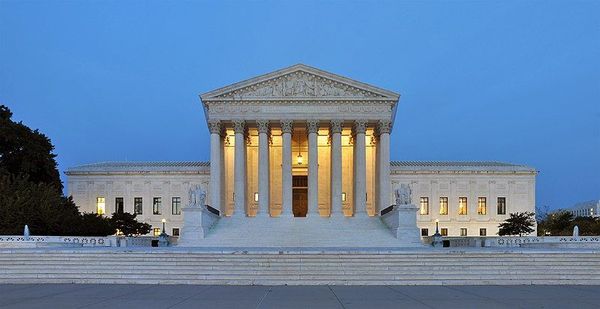Supreme Court allows tribes to gamble on own land in Texas
June 16, 2022

Two Native American tribes in Texas won over the state on Wednesday as the Supreme Court allows them to operate gambling on their own lands. The ruling though will not allow games prohibited in Texas. But it does further strengthen the sovereignty of the tribes in the state.
The tribes involved are the Ysleta del Sur Pueblo tribe also known as the Tiguas who reside close to El Pase, and the Alabama-Coushatta Tribe of Texas residing in northern Houston.
“The Court’s decision is an affirmation of Tribal sovereignty and a victory for the Texas economy,” Ricky Sylestine, Tribal Council’s chair of the Alabama-Coushatta Tribe of Texas, said in a statement.
“The highest Court in the land has made clear that our Tribe has the right to legally operate electronic bingo on our reservation, just as we have the past six years."
The justices agreed in a 5-4 ruling giving autonomy for non-prohibited gaming in lands owned by the respective tribes. They are allowed to regulate electronic bingo games and slot machines on their own lands. The ruling stretches to allow the tribes to bypass the state’s rules on non-illegal gambling.
“This is a significant victory for the Ysleta del Sur Pueblo Indian Tribe after decades of losses in the lower court,” said Ben Kappelmann, partner at international law firm Dorsey & Whitney. He handles cases of issues regarding federal and Native American law.
“Still, the Supreme Court’s decision will hardly leave the Pueblos’ gaming unregulated. They will simply join the large number of tribes whose gaming ventures are regulated by the National Indian Gaming Commission.”
The tribes may host gambling games now as long as they are not prohibited and criminalized in the state and Texas is not allowed to impose regulations on them. Justice Neil M. Gorsuch emphasized the tribes’ inability to hold any games they want, especially prohibited games.
“None of this is to say that the Tribe may offer gaming on whatever terms it wishes. The Restoration Act provides that a gaming activity prohibited by Texas law is also prohibited on tribal land as a matter of federal law,” Gorsuch wrote.
“Other gaming activities are subject to tribal regulation and must conform to the terms and conditions set forth in federal law.”
Texas gambling aversion
For decades, the Tiguas have held onto their wish to expand their gambling but Texas keeps blocking their effort because it is one of the states to have the strictest gambling laws in the U.S.
Ronald Mann, professor of law at Columbia, shed his opinion about the tribe-state gambling conflict on the SCOTUS blog. He said the problem is rooted in both sides' different wishes on gambling in the state.
The tribes are looking to profit from gambling businesses that are free from the shackles of the state’s law. While the state looks to regulate reservation gambling.
The case brought forth provisions of the Restoration Act in section 105(f), Section 107(a), and Section 107(b). The tribes’ interpretation of 107(a) is “Texas the authority to prohibit those forms of gambling that are utterly prohibited in Texas,” according to Mann. And 107(b) “excluding Texas from applying its regulatory authority directly to the two Restoration Act reservations”.







